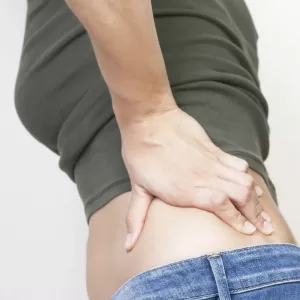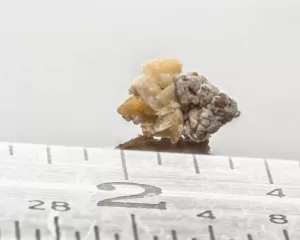What are kidney stones and why do they happen?
What are kidney stones?
Kidney stones are hard crystals that form from different salts in the urine. They can occur anywhere in the urinary tract- in the bladder, kidneys or ureters (the tubes that join the kidneys to the bladder).
How common are kidney stones?
They’re very common- around 1 in 10 men will get them at some stage during life, and around 1 in 35 women. And they tend to recur- about half of people who get kidney stones for the first time, will get them again within the next 5 years.
Are there different types of kidney stones?
Yes there are a number of different types:
- They are most commonly made from calcium.
- Less commonly, they are made from magnesium and phosphate (struvite stones) which may relate to urinary tract infections.
- Urate stones can be linked to gout, or a diet high in meat and protein.
- Cystine stones are rare and usually relate to genetic conditions.
Why do you get kidney stones?
Often there is no obvious reason, though the following factors may increase the risk :
- Dehydration- if your urine is dark yellow it may mean you are not getting enough fluids
- Recurrent urinary tract infections
- Scarred/ abnormal kidneys
- Some medications such as diuretics (water tablets), aspirin, antacids, certain antibiotics, anti-epileptics and chemotherapy can cause kidney stones
- Being immobile or bed-bound
- Underlying medical conditions- certain illnesses can cause increased levels of calcium in the bloodstream or urine, such as sarcoid, hyperparathyroidism, Crohn’s disease or a history of intestinal surgery. However, most people who get kidney stones do not have any of these conditions.
What are the symptoms of kidney stones?
- Often there are no symptoms- for instance, kidney stones may appear as a chance finding on an ultrasound
- Renal colic- this is an intense cramping pain in the kidney area (the left or right side of the lower back). It may spread round to the front of the abdomen and down to the groin area. The pain can be severe, and vomiting may occur- quite often renal colic will result in a trip to the emergency department.
- Blood in the urine (this may be visible to the naked eye, or noticed when a doctor dips your urine)
- A sensation of passing stones or grit during urination
- Urinary tract infections (UTI)- the presence of stones may increase the risk of bladder or kidney infections– a UTI can present with symptoms such as lower abdominal pain, back pain, urinary frequency, a burning sensation when you pass urine, blood in the urine, fever, chills or sweats.
How are kidney stones diagnosed?
Kidney stones may be diagnosed when the typical symptoms of renal colic happen, or if a stone is passed. Diagnosis may be confirmed by a scan or X-ray. There may be blood present in the urine, but not always. In some people there are no symptoms, and the stones appear as a chance finding on a scan or X-ray of the abdomen done for some other reason. Sometimes the stones themselves will be analysed to determine what they are made of, as this may give a clue to the underlying cause ( but generally this is unnecessary).
Can you prevent kidney stones?
Certain measures may help to reduce the risk:
- Staying well hydrated by drinking plenty of water, particularly if you are exercising, sweating a lot at work, or living in a warm climate.
- Some medications can cause kidney stones, such as diuretics (water tablets), aspirin, antacids and others- it’s worth checking with your doctor if you’re on regular medications that may be increasing your risk.
- Sometimes, if you have a lot of kidney stones, your doctor may suggest reducing foods that contain oxalates. Oxalates are substances that may make it harder for your body to absorb calcium, leading to higher levels of calcium in your urine and a higher risk of stones. Foods containing oxalates include beetroot, rhubarb, celery, parsley, chocolate, leeks, asparagus, almonds, peanuts, cashews, soy-based foods, oats and wheatgerm. However, most people who get kidney stones do not need to make any changes to their diet.
What are the complications of kidney stones?
Usually there are no complications. However, sometimes kidney stones can lead to urinary tract infections. A large stone can also cause a blockage, leading to pressure back up into the kidney and kidney damage/scarring.

What is the treatment for kidney stones?
- In most cases kidney stones will pass over a few days, though it can be quite uncomfortable.
- It’s advisable to drink plenty of water to encourage a good flow of urine, and to take painkillers as needed.
- Less commonly, if a stone is large, gets stuck or causes a blockage, a procedure may be required. Lithotripsy (also known as extracorporeal shockwave lithotripsy or ESWL) is when high energy shock waves are used to break up the stones, so that they can be passed as smaller pieces. In other cases, a camera may be inserted into the kidney and the stone removed that way. Rarely, surgery is required.
If you think you’ve had kidney stones or have any concerns, speak to your doctor.
Getting a Mental Health Care Plan in Australia: Your Guide
Getting a Mental Health Care Plan in Australia: Your Guide Mental health matters—and if you’re feeling overwhelmed, anxious, or down, a mental health care plan can help. But what is it, and how do [...]
UTI Symptoms and Treatment: What You Need to Know
UTI Symptoms and Treatment: What You Need to Know Urinary Tract Infections (UTIs) are common, uncomfortable, and often disruptive. But what exactly are the signs to watch for, and how can you get relief [...]
Free Mental Health Care Plan Online | Bulk-Billed by Qoctor
Free Mental Health Care Plan Online | Bulk-Billed by Qoctor Discover how to get a free, bulk-billed Mental Health Care Plan (MHCP) in Australia through Qoctor's telehealth service. Accessing [...]




